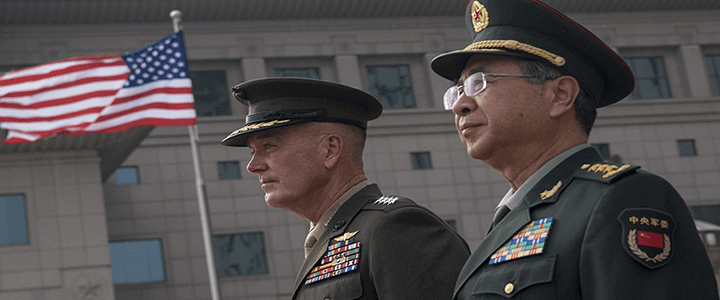The Department of Defense (DoD) testified before congress in late June 2018 on the threat posed by China’s investment in targeted technologies used and relied upon by the DoD. These technologies included, but are not limited to, artificial intelligence, autonomous vehicles, cybersecurity, and unmanned aerial vehicles. In this testimony, the DoD makes clear its understanding of China’s goal of acquiring technology from non-Chinese sources to advance its own economy, but also to advance its military capabilities.
Secretary of Defense James Mattis articulates in the National Defense Strategy how the Committee on Foreign Investment in the United States (CIFUS) is not enough to stop the Chinese in their seemingly never-ending quest for advanced technologies from the U.S. To that end, Mattis suggested the strengthening of counterintelligence capabilities at Defense Security Services (DSS), and the various counterintelligence organizations supporting the Armed Forces (NCIS, AFOSI and Army CI).
In addition, he advocated for an increase in the private sector attention to supply chain and cybersecurity, with the support of the DoD. The National Industrial Security Program (NISP) is to move from a checklist orientation to a risk-based orientation to protect both classified and sensitive controlled unclassified information, to include personal identifying information.
Lastly, he advocated including in the National Defense Authorization Act (NDAA) the implementation of processes to protect and strengthen the DoD’s supply chain and to improve sharing of information with the private sector in the protection of the U.S.
security protocols in 2019 ndaa
The 2019 NDAA mentions China more than 50 times, ranging from the exclusion of China from the Rim of the Pacific naval exercises to prohibiting the investment by China in U.S. companies which may be creating military or dual-use technologies.
The most telling portion of the NDAA is its requirement that the DoD must provide to the CIFUS an “espionage report” within its annual report to Congress on Chinese military capabilities. Thus arming CIFUS with the appropriate information to make the decision on whether a specific Chinese investment in a U.S. company should be permitted.
Going forward, CIFUS, which has been a rather obscure committee, can be expected to shift to the front of the stage. It is the identified U.S. government tool to be used to prevent inappropriate Chinese investments.




